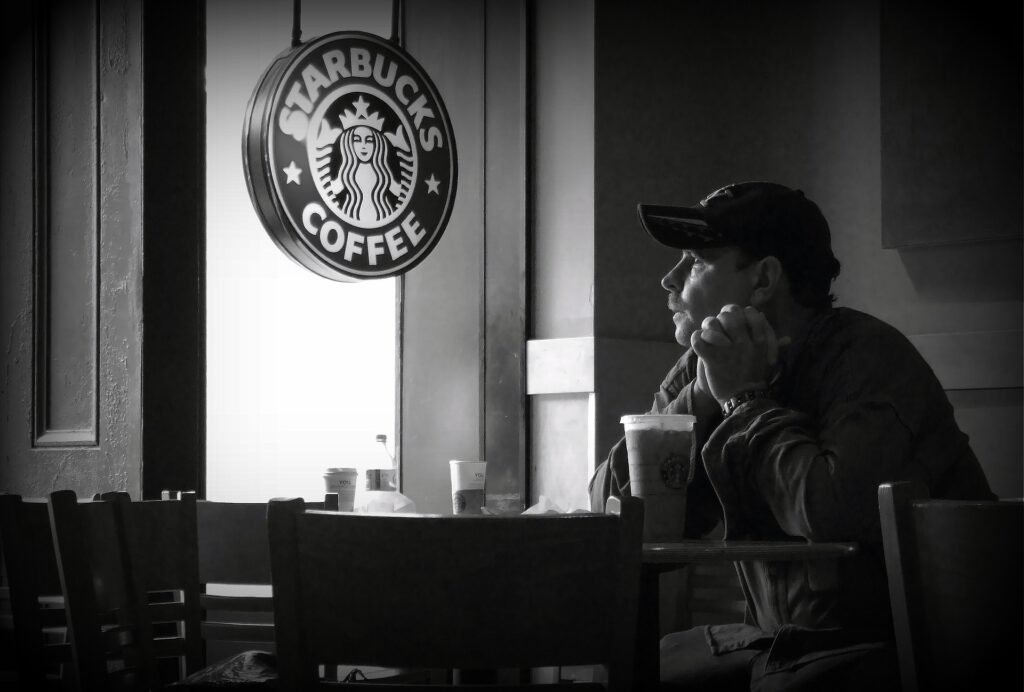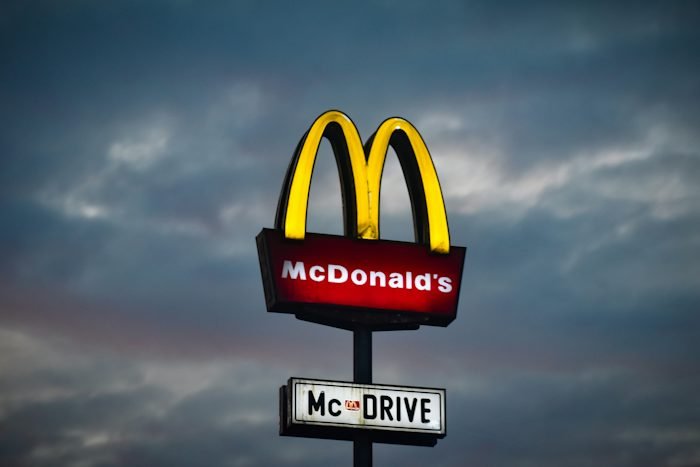In today’s interconnected world, corporate decisions send ripples across borders. McDonald’s, an emblem of Western consumerism, faces a significant hurdle – a sweeping boycott triggered by its perceived stance on the Israel-Gaza conflict.
This article delves into the far-reaching consequences for McDonald’s, exploring the intricate dynamics impacting sales, brand perception, and regional functions. From scrutinizing global sales variations to assessing how other Western brands, including Starbucks, respond, this narrative aims to unveil the intricate interplay of geopolitical tensions in the fast-food realm. Join us as we untangle the layers of the McDonald’s boycott and its implications on the global stage.
- Introduction
- McDonald’s Boycott: Understanding the Background
- Global Sales Analysis: Middle East vs. Other Regions
- The Impact of Boycotts on McDonald’s and Starbucks
- McDonald’s CEO Responds to Sales Decline
- Franchisee Reactions: Distancing and Pledges in the Middle East
- Sales Hit Beyond the Middle East: France, Malaysia, and Indonesia
- Social Media Fueling Boycotts: #BoycottStarbucks and #BoycottMcDonalds
- Starbucks Sales Forecast Cut: Legal Battles and Public Backlash
- Coca-Cola and Domino’s: Examining Additional Brands Amid Boycott Rumors
- Global Comparisons: Impact on McDonald’s, Starbucks, Coca-Cola, and Domino’s
- Legal Actions: McDonald’s Malaysia Sues Boycott Movement
- Analyzing Low Competition Keyphrase: “Will Boycott Affect McDonald’s”
- Frequently Asked Questions: Will McDonald’s be Boycotted in the Middle East?
- Addressing Common Queries: Will Boycotts Affect Starbucks & McDonald’s?
- Examining the Losses: McDonald’s Boycott Impact
- Conclusion: Navigating the Complex Landscape of Boycotts
Introduction
The fast-food industry has recently found itself entangled in geopolitical controversies, with McDonald’s facing a significant challenge – a global boycott. This article delves into the repercussions of the boycott on McDonald’s, exploring its impact not only on the company’s sales but also on its image and operations worldwide.

McDonald’s Boycott: Understanding the Background
The genesis of the boycott lies in McDonald’s perceived support for Israel during the Israel-Gaza conflict. The controversy erupted when McDonald’s Israel distributed thousands of free meals to Israeli forces and citizens following the 7 October attacks, sparking calls for a boycott.

Global Sales Analysis: Middle East vs. Other Regions
McDonald’s recent sales report reveals a stark contrast in growth rates. While the overall sales growth stands at 3.4 percent, the licensed markets in the Middle East, including Saudi Arabia, Oman, and the UAE, saw only a 0.7 percent increase. This discrepancy underscores the impact of the boycott on the company’s sales in regions directly affected by the Israel-Gaza conflict.

The Impact of Boycotts on McDonald’s and Starbucks
The boycott has not spared other Western brands, with Starbucks also experiencing a significant downturn. Social media campaigns with hashtags like #BoycottStarbucks and #BoycottMcDonalds have fueled public dissent, questioning the stance of these brands on the conflict.

McDonald’s CEO Responds to Sales Decline
In an earnings call, McDonald’s CEO, Mr. Kempczinski, acknowledged the adverse impact of the boycott on sales. He deemed the backlash “disheartening and ill-founded,” attributing it to misinformation. However, the CEO stopped short of altering the company’s position, insisting on the independent actions of local franchisees.
Franchisee Reactions: Distancing and Pledges in the Middle East
Franchisees in several Middle Eastern countries, including Saudi Arabia, Oman, Kuwait, and the UAE, distanced themselves from McDonald’s Israel and pledged millions in aid to Palestinians. This move signifies the local franchisees’ attempt to navigate the delicate balance between their global affiliation and regional sentiments.

Sales Hit Beyond the Middle East: France, Malaysia, and Indonesia
The boycott’s ripple effect extends beyond the Middle East. France, home to the largest Muslim population in Europe, experienced weaker sales, while Malaysia and Indonesia saw a pronounced impact. The complex interplay of geopolitical sentiments and consumer behavior becomes apparent as global markets respond to the ongoing conflict.
Social Media Fueling Boycotts: #BoycottStarbucks and #BoycottMcDonalds
Social media platforms have emerged as powerful catalysts for the boycott, with hashtags like #BoycottStarbucks and #BoycottMcDonalds gaining traction. Online activism continues to amplify the voices of those advocating for the boycott, reflecting a broader trend of consumers holding corporations accountable for their perceived political alignments.

Starbucks Sales Forecast Cut: Legal Battles and Public Backlash
Starbucks, too, faced the repercussions of the conflict, slashing its annual sales forecast. Legal battles ensued when Starbucks Workers United expressed solidarity with Palestine, leading to a lawsuit and public backlash. The company’s revised sales projections underscore the far-reaching consequences of being embroiled in geopolitical controversies.

Coca-Cola and Domino’s: Examining Additional Brands Amid Boycott Rumors
Coca-Cola, historically entangled in Middle Eastern conflicts, finds itself on boycott lists again. Domino’s, though facing unverified claims of providing free food to Israeli soldiers, experiences a sales dip in Asia, particularly in Malaysia, where anti-Israel sentiments run high.
Global Comparisons: Impact on McDonald’s, Starbucks, Coca-Cola, and Domino’s
A comparative analysis reveals the varied impact on global brands. While McDonald’s grapples with sales decline in the Middle East, Starbucks faces legal battles. Coca-Cola confronts historical affiliations, and Domino’s navigates unverified claims. Understanding the diverse repercussions on these brands provides insights into the broader implications of geopolitical conflicts on multinational corporations.

Legal Actions: McDonald’s Malaysia Sues Boycott Movement
In a surprising turn, McDonald’s Malaysia takes legal action against the boycott movement, accusing it of spreading false information and harming the company’s reputation. This legal maneuver sheds light on corporations’ defensive strategies when faced with organized movements seeking to affect their bottom line.
Analyzing Low Competition Keyphrase: “Will Boycott Affect McDonald’s”
As queries surrounding the impact of boycotts intensify, analyzing the low competition keyphrase “Will Boycott Affect McDonald’s” becomes crucial. This section explores the factors that could contribute to the overall influence of boycotts on McDonald’s global standing and financial performance.
Frequently Asked Questions: Will McDonald’s be Boycotted in the Middle East?
Addressing a commonly asked question, this section delves into the dynamics that could determine the fate of McDonald’s in the Middle East. Exploring potential scenarios and considering the historical context of boycott movements, it seeks to provide a comprehensive understanding of the situation.

Addressing Common Queries: Will Boycotts Affect Starbucks & McDonald’s?
Navigating through frequently asked questions, this section addresses concerns about the broader impact on Starbucks and McDonald’s. Analyzing shared challenges and divergent responses, it sheds light on how these industry giants navigate geopolitical controversies that threaten their global standing.
Examining the Losses: McDonald’s Boycott Impact
Quantifying the losses incurred due to the boycott, this section provides a detailed analysis of the economic implications for McDonald’s. Beyond financial metrics, it explores the long-term consequences on brand image, customer loyalty, and the challenges of reconciling global corporate identity with regional sentiments.

Conclusion: Navigating the Complex Landscape of Boycotts
In conclusion, the McDonald’s boycott underscores the intricate challenges faced by multinational corporations entangled in geopolitical conflicts. As companies grapple with shifting consumer sentiments, legal battles, and financial losses, the episode serves as a testament to the evolving dynamics between global brands and regional
World Leaders React to Israel-Palestine Conflict 2023: Calls for Peace Amid Escalating Tensions

